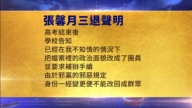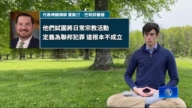【新唐人2014年03月05日讯】中国导演贾樟柯改编自真实社会案件的新片《天注定》,不仅没有通过中共审查,最近又传出网路版流出。等于这部电影将失去中国市场。与此同时,在云南昆明火车站发生的砍人流血事件之后,有网友说,《天注定》影片给观众展现的与当今中国社会是如此的真实,和官方媒体描述的盛世中国、或中国梦完全格格不入,这部片子要想在国内公演几乎不可能。
3月1号,与昆明火车站流血事件同一天,国际导演贾樟柯在新浪微博上透露,十个月之间他一直在为电影《天注定》的国内发行奔走,但这部片子的网路版突然流出,电影恐怕会失去中国市场。
贾樟柯曾经以“三峡好人”荣获威尼斯金狮奖,“小武”则夺下柏林青年论坛首奖,还两度受封法国“法兰西艺术与文学勋章”。他的最新电影作品《天注定》,改编自轰动中国四个突发的暴力新闻事件。
《天注定》导演贾樟柯:“可以说这四个故事,在过去三、四年间,中国发生的诸多真实事件中,让我非常难以忘怀,也非常难以平静,我希望藉由此片,我们去理解我们日常生活里,为什么会滋生出这么多的暴力。”
这四个事件分别是,胡文海案、周克华案、邓玉娇案以及富士康员工跳楼事件。
那么,是怎么样的社会因素,让一个普通村民不得不拿起枪?“胡文海案”描述的就是﹕在中国社会经济快速发展下,带来的贫富分化、司法不公正,以及弥漫在乡村社会中的贪污腐败问题。
而“周克华案”,则描述繁华的重庆,在河对岸的村庄却非常萧条,好像人物自身生命的价值很难实现。而主角在这种情况下找到了一个错误的爆发点,成为职业犯罪者,似乎犯罪本身,能够改变他的生活处境,并满足精神上的一种需要。
另外,“邓玉娇案”阐释的则是暴力核心问题,也就是尊严的问题。因为在暴力发生的瞬间,往往是尊严被剥夺最厉害的一刹那。人们失控,忍耐力超出自己能承受的水平,最后不得不拔刀相向。
最后,“富士康跳楼事件”,讲少年打工者在东莞的情况,把暴力的主题扩展到“无形的暴力”。同时,还有很多中国现实的问题,比如户籍制度的存在、劳动者的工作条件、工作环境等带来的精神压力等。
大陆文化评论家 叶匡政:“其实中国一直缺少这种暴力意识的损失和纠正,目前越来越贫富分化的现实,包括司法很难为民众真正来主持正义,这些其实都成为很多个人暴力事件的土壤。”
电影《天注定》在去年5月的“戛纳电影节”上,赢得“最佳编剧奖”。
叶匡政:“我想它在国外能够获奖,就是因为它对当下中国的暴力事件,特别电影通过这种反思,因为很多社会底层的民众,当他们通过法律,或者通过上访各种方式,就是没有办法伸张自己冤屈的时候,其实暴力往往会被提升,看做一种挽回自己的尊严最快、最直接的一种方式。”
影片虽然得奖,但还是遭中共当局封杀,无法在中国境内播出,对此外界也产生质疑。
香港作家张成觉:“他(中共)允许这样的片子,在规模不是很大的电影节上映的话,好像是一种我们也有表达的自由,也有独立制片人是报导我们(中共)的黑暗面,我们也让它出去啊,就是粉饰自己所谓的法治。”
日前发生在云南昆明火车站的砍人事件,中共官方已定调为“疆独”人士发动的所谓“恐怖攻击”。但回溯新疆历史,“东突厥斯坦第二共和国”曾于1944年短暂建国五年,可是它的背后,正是前苏联与中共的全力支持。
旅美新媒体人“北风”在推特上写道,昆明火车站袭击事件与《天注定》几乎同时流出。一个问题不容回避:暴力受害者变成暴力实施者的原因?
采访/田净 编辑/黄亿美 后制/郭敬
Film ‘A Touch of Sin’ And The Reality Of The Kunming Attack
The online version of A Touch of Sin, a Chinese film
directed by Jia Zhangke, which has yet to pass through
the Communist regime’s censorship, recently leaked
on the Internet.
While the film has pretty much lost its market in China,
the Kunming incident has people commenting that the film
reflects the present day Chinese society.
In spite to the regime’s claim of a flourishing China
and talk of the China Dream, the release of the film
in China is out of the question.
On March 1, the same day of the Kunming bloodshed,
international director Jia Zhangke revealed on Weibo
that the film A Touch of Sin had leaked on the web.
His 10-month effort to have the film released in China
has gone in vain, and this film will likely never make it
to the Chinese market.
Jia Zhangke is a world renowned film director.
His film Still Life won the Golden Lion Award for Best Film
at the Venice Film Festival, while an earlier film of his,
Xiao Wu, won an award at the Berlin International
Film Festival.
Two-time recipient of France’s Order of Arts and Letters,
A Touch of Sin, Jia Zhangke’s latest film, revolves around
four violent stories based on true events adapted
from modern day China.
Film Director Jia Zhangke: “These four stories are among
the many real incidents in China over the past few years
that have shocked me and are hard to forget.
Through this film, I wanted to understand why so much
violence has been spawning around us."
The four social incidents Jia referenced are the Hu Wenhai
case, the Zhou Kehua case, the Deng Yujiao incident,
and the Foxconn suicides.
What are the social factors that push an ordinary villager
to pick up a gun?
The Hu Wenhai case describes the widespread disparity,
judicial injustice and corruption problems in a rural society
amidst the rapid economic development in China.
The Zhou Kehua case illustrates life in a depressed village
across the river from downtown Chongqing where
life is seemingly hard to realize.
The protagonist in this case became a professional criminal
in an attempt to fulfill his life goals
and satisfy his psychological needs.
The Deng Yujiao incident explains a core issue of violence—
dignity—as violence often occures when people have been
deprivation of their dignity to the extreme.
Humans lose control when their situations exceeds
what one can endure.
Lastly, the Foxconn suicides are interpreted
by a young worker at Dongguan.
Described as a form of “invisible violence" derived
from many social pressures in the existing system
such as the household registration, job conditions
and work environment.
Cultural critic Ye Kuangzheng: “In fact, there is a lack
of awareness regarding the damage caused by violence
and the correctional system in China.
The reality of social disparity and the corrupt judiciary system
has become fertile ground for many violent incidents."
A Touch of Sin also won the award for Best Screenplay
at the 2013 Cannes Film Festival.
Ye Kuangzheng: “I believe it was awarded for its honest
reflection of the violent incidents in modern day China.
People at the bottom rung of the society resort to violence
as the fastest and most direct means of restoring their dignity
when injustice is irresolvable via legal procedures
or petitions."
This much acclaimed film was censored
by the Communist regime, as expected.
Zhang Chengjue, Hong Kong writer: “If they (CCP) would
release this kind of film in a small film festival, it would seem
to indicate that there’s freedom of expression, here is an indie
film describing the dark side, and it should be released.
Rather, they just want to whitewash the so-called rule of law."
The Communist officials claim terrorists, Xinjiang separatists,
are responsible for the Kunming killings.
However, looking back at Xinjiang’s history, in 1944 the East
Turkestan Republic’s ruling Xinjiang was short lived –
only five years— and Xinjiang was then supported by
the former Soviet Union and the Chinese Communist Party.
Journalist Bei Feng wrote on Twitter, “The Kunming attacks
and A Touch of Sin pose the unavoidable question,
‘Why do the victims of violence become the perpetrators?'"
Interview/Tian Jing Edit/Huang Yimei Post-Production/Guo Jing





























